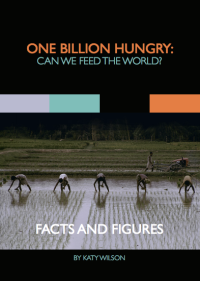 Food price volatility is a serious threat to food security, economic development and political stability, and one that has been driving sober debate in how such unexpected and unpredictable shocks can be mitigated in the future. Now a new policy brief, Managing food price volatility: policy options to support healthy diets and nutrition in the context of uncertainty, explores policy options that have the potential to both foresee price volatility or market uncertainty and moderate its impact on food and nutrition security. Interventions identified include short-term and long-term strategies that aim to protect the immediate food needs of society while also facilitating the development of more steady and stable food markets and prices.
Food price volatility is a serious threat to food security, economic development and political stability, and one that has been driving sober debate in how such unexpected and unpredictable shocks can be mitigated in the future. Now a new policy brief, Managing food price volatility: policy options to support healthy diets and nutrition in the context of uncertainty, explores policy options that have the potential to both foresee price volatility or market uncertainty and moderate its impact on food and nutrition security. Interventions identified include short-term and long-term strategies that aim to protect the immediate food needs of society while also facilitating the development of more steady and stable food markets and prices.
The report was launched on the 16th March at an event held at the Houses of Parliament by the Global Panel on Agriculture and Food Systems for Nutrition and the APPG on Agriculture and Food for Development. Chair of the Global Panel and former President of Ghana, John A. Kufuor, was quoted as saying, “We are confident that policymakers could make better use of tools which help predict prices and manage price volatility. Together we can deliver timely and effective policy actions”. Panel member, Emmy Simmons, who is also a Board Member of the Partnership to Cut Hunger and Poverty in Africa/Agree praised the report for its focus on the short- and long-term as well as its recommendation to learn lessons from government efforts to minimise price volatility and its effects on the food intake of poorer households.
The food crisis of 2008 was a wake-up call to the severe impacts of rapidly fluctuating food prices and since then many have tried to address this issue. On the one hand, food prices must be stabilised to some degree so as to make them more predictable while on the other governments must ensure citizens have access to enough healthy food despite the challenges the world’s food system faces – from declining crop production to a dwindling natural resource base to climate change to urban expansion. Price volatility can be especially detrimental to food security for the poorest households who can spend as much as 75% of their total income on food. And both declines, which can reduce household incomes, as well as price rises, which reduce how much food a family can purchase, can impact food and nutrition security. [Read more…]









